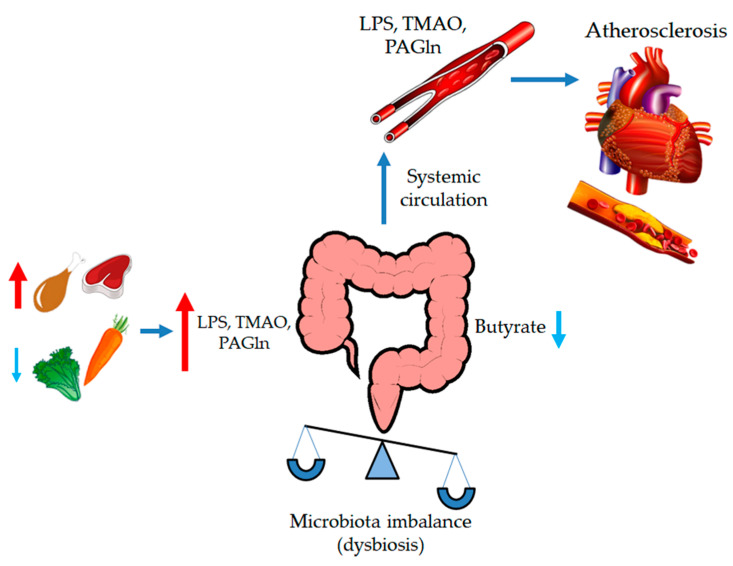Figure 5.
Microbiota dysbiosis promotes atherosclerosis formation. An obesogenic diet is rich in meat-derived choline and poor in fiber and complex carbohydrates. This type of diet promotes alteration in gut microbiota, and in consequence, affects intestinal permeability promoting bacterial translocation and increases in lipopolysaccharide (LPS), including trimethyl-amine (TMA) production, which is a precursor of TMAO. The presence of these molecules in peripheral tissues promotes inflammation and cardiac tissue development of atherosclerosis. Dysbiosis also decreases the number of butyrate-producer bacteria, reducing its protective and beneficial effects.

